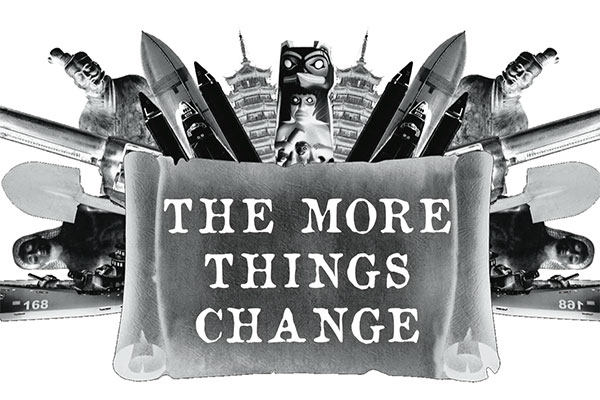The More Things Change | Issue 16
22-28 July
July 22, 1587: The second group of English settlers arrived at Roanoke Colony in the US in an attempt to establish a permanent settlement, and this was pretty much the last anyone in England ever heard of them. The first colonists had hitched a ride back to England because they’d run out of supplies, but the second group went one better. The Governor went home to get more support for the colony, and arrived back three years later to find that everyone had completely disappeared. The only sign of them was a word carved into a tree, indicating that they may have relocated to a nearby island, but to this day no one is sure why Roanoke ended up like Dunedin in summer.
July 23, 1829: William Austin Burt patented the typographer, an early version of the typewriter. Apparently its speed of operation was no faster than handwriting. Probably due to this incredible inefficiency, it kicked off an era of better machines that eventually led to printing on an industrial scale (unfortunately for those who had jobs operating the old machines). Typewriting devices are generally indispensable these days, but should still be used sensibly: I was once in a lecture with a health sci who’d brought a typewriter along because they couldn’t afford a laptop and were somehow incapable of writing by hand, and I can still hear that horrible dinging noise resounding through the St Dave theatre. Technology, eh.
July 24, 1851: Up until this day, Great Britain was enforcing a window tax, which is actually exactly what it sounds like. There was no income tax at the time because it was too controversial, so people were taxed according to the number of windows in their house. The argument was that wealthier people would have bigger houses and as such more windows; you had to pay if your house had more than ten, and the maximum charge was eight shillings (about NZ $85 today) if you had more than twenty. This tax is the reason why a lot of houses in Britain have bricked-up windows – clearly, people will go to considerable effort to avoid taxes no matter how far back in history you go.
July 22, 1983: Vostok Station in Antarctica recorded the lowest ever natural temperature on Earth: -89.2 degrees Celsius. The station is a nice little place if you never want to be warm again – the highest temperature it has recorded is -12.2°C. For comparison, the lowest temperature recorded in Dunedin since 1991 is -8.8°C. It’s positively tropical up here.






